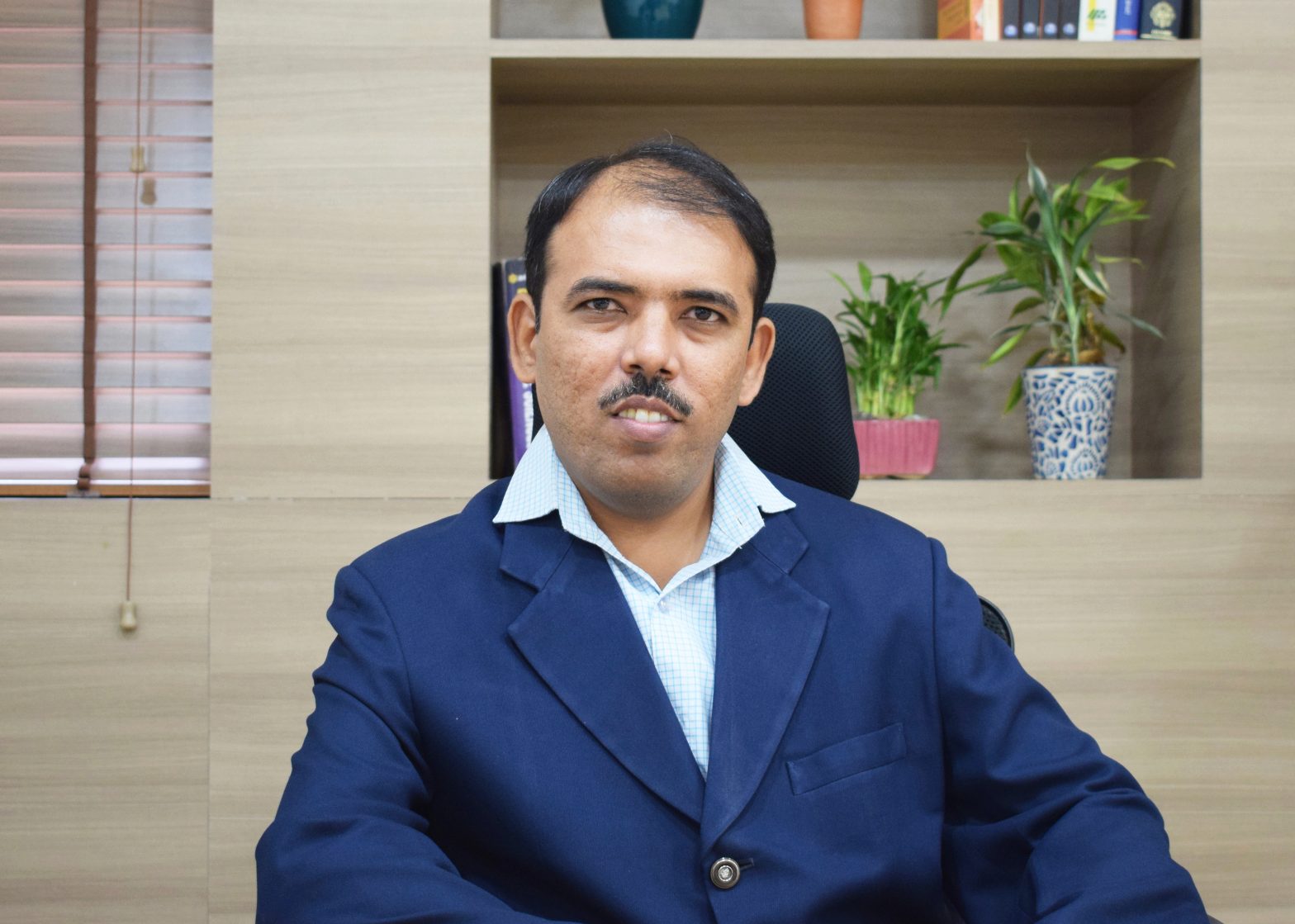
Dr. Imran Pancha, PhD
– Ph.D. in Biological Sciences, 2015
– M.Sc. in Microbiology, 2007
– B.Sc. in Microbiology, 2004
About
I obtained my PhD from CSIR-CSMCRI in 2015, during my doctoral research I mainly worked on biochemical engineering for production of biofuels and industrially relevant products from microalgae. Apart from this I also involved in production of biopolymers and enzymes from extremophilic bacteria. After my PhD, I joined Tokyo institute of Technology-Japan through prestigious JSPS postdoctoral fellowship (2016-2018). During my tenure as JSPS postdoc fellow I mainly worked on TOR signalling in microalgae and its role in sustainable biomass production. After returning from Japan, I joined SRM University-AP in 2019 as Assistant Professor where I mainly involved in undergraduate teaching and supervision of doctoral students.
Background
- Ph.D. in Biological Sciences, 2015 from Central Salt and Marine Chemicals Research Institute (CSIR-CSMCRI), Gujarat.
- M.Sc. in Microbiology, 2007 from Bhavnagar University
- B.Sc. in Microbiology, 2004 from Bhavnagar University
Honours and Awards
- 2020: Major research project received as Startup Research Grant funded by Science and Engineering Research Board (SERB), Department of Science and Technology, Govt.of India.
- 2020: Considered as Top 2% researcher in the field of Biotechnology for the years 2019 & 2020 through study carried out by Stanford University
- 2018: Qualified ICAR-NET for Lectureship
- 2018: EMBO travel grant to present work at EMBO workshop on target of rapamycin (TOR) signaling in photosynthetic eukaryotes
- 2016: Recipient of JSPS Post-Doctoral Fellowship (2016-2018) sponsored by Japanese Society for Promotion of Science, Japan
- 2015: Visiting fellowship to University of Campinas (UNICAMP), Sao Paulo, Brazil
- 2012: Recipient of Senior Research Fellowship (2012-2015) sponsored by Council of Scientific and Industrial Research (CSIR), New Delhi
- Outstanding contribution in reviewing award by the Bioresource Technology (Elsevier)
- Approved Microbiologist by Food and Drugs Control Administration (FDA) Gujarat, India
Research Expertise
- Bioprocess engineering, Molecular Microbiology, Phycology, TOR signaling in microalgae, Microalgal Biofuels & biorefinery, Extremophiles
Research Group Overview
- Our main research focus is to produce renewable energy and industrially relevant compounds from microalgae. We are optimizing culture conditions to improve the growth and accumulation of TAGs/starch content in microalgae. We are also applying various chemical modulators to mitigate stress and improve the growth of microalgae. We are trying to develop integrated microalgal biorefinery to produce high-value compounds like phycobiliproteins, carotenoids along with biofuel and biofertilizers from microalgae. Apart from this, we are interested to understand algal-bacterial interaction, particularly isolate and characterize the microalgae associated bacteria and finding their role in growth enhancement and inhibition in microalgae. Our group is also interested to explore extremophiles for production of various valuable compounds such as biopolymer, enzymes etc. In a parallel, our research group working to understand the molecular mechanism behind the accumulation of carbon reserved molecules like TAGs/starch in microalgae. To understand this, we are utilizing model microalgae Cyanidioschyzon merolae and Chlamydomonas reinhardtii. Particularly we are interested to understand how checkpoint kinase target of rapamycin (TOR) is involved in growth as well as accumulation of TAGs/starch in microalgae. We are utilizing various biochemical and molecular genetic tools to understand TOR signaling in microalgae.
Publications
- Imran Pancha, Kaumeel Chokshi, Kan Tanaka, and Sousuke Imamura. Microalgal Target of Rapamycin (TOR): A Central Regulatory Hub for Growth, Stress Response and Biomass Production. Plant and Cell Physiology 61, no. 4 (2020): 675-684. IF-4.937
- Imran Pancha, Hiroki Shima, Nahoko Higashitani, Kazuhiko Igarashi, Atsushi Higashitani, Kan Tanaka, and Sousuke Imamura. Target of rapamycin (TOR) signaling modulates starch accumulation via glycogenin phosphorylation status in the unicellular red alga Cyanidioschyzon merolae. The Plant Journal 97(2019):485-499. IF-7.091
- Imran Pancha, Kan Tanaka and Sousuke Imamura. Overexpression of a glycogenin, CmGLG2, enhances floridean starch accumulation in the red alga Cyanidioschyzon merolae. Plant Signaling and Behavior 14(2019):1596718-1596724. IF-2.734
- Imran Pancha, Kaumeel Chokshi, Rahulkumar Maurya, Sourish Bhattacharya, Pooja Bachani, and Sandhya Mishra. Comparative evaluation of chemical and enzymatic saccharification of mixotrophically grown de-oiled microalgal biomass for reducing sugar production. Bioresource Technology 204 (2016): 9-16. IF-11.889
- Imran Pancha, Kaumeel Chokshi, Basil George, Tonmoy Ghosh, Chetan Paliwal, Rahulkumar Maurya, and Sandhya Mishra. Nitrogen stress triggered biochemical and morphological changes in the microalgae Scenedesmus sp. CCNM 1077. Bioresource Technology 156 (2014): 146-154. IF-11.889

